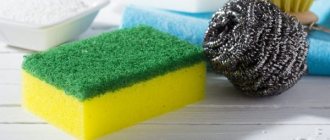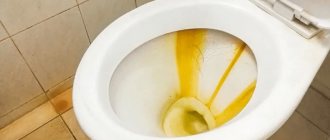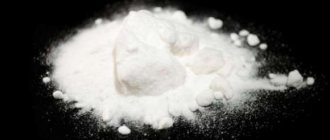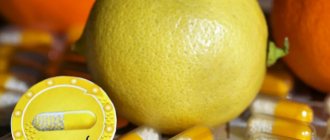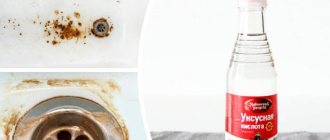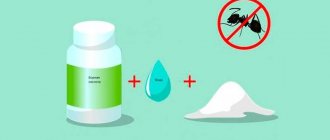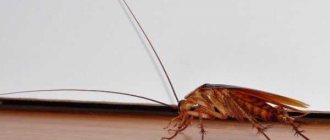Red traces of rust will not be a problem if you approach the issue of removing them in a timely and competent manner.
There are a sufficient number of folk and professional remedies, among which one can highlight one that is most effective for removing rust and safe for human health - citric acid.
This is a tool accessible to everyone that allows you to quickly get rid of rust stains from almost any surface.
Will lemon juice help against corrosion?
The product of the corrosion process, rust, gradually penetrates the metal structure, destroying it.
Not only can you remove red stains, but you can also temporarily stop the oxidation process by cleaning with citric acid. It interacts with the formed iron oxides and neutralizes oxidation reactions.
"Limonnka" is an effective means of removing rust stains from:
- metal,
- glass,
- ceramic surfaces,
- clothes.
Most often, an acidic solution is used in cleaning:
- car body,
- plumbing in the house,
- old coins.
The only point worth remembering when choosing citric acid to remove rust stains: an acidic solution is effective only if used in a timely manner (as soon as the stain appears).
Citric acid may be powerless against old, stubborn stains.
Why does rust appear?
Any metal sooner or later becomes covered with rust.
Initially, in nature, metals are not mined in their pure form, but in the form of chemical compounds: carbonates, oxides, sulfides, hydroxides. These compounds contain carbon, oxygen, sulfur, water and other components.
If metals were initially pure, they would not be afraid of rust. But there are only one or two such fossils – gold, silver, platinum. They do not strive to create connections, therefore they practically do not interact with the environment, it does not have much influence on them. The rest of the metals sooner or later undergo corrosion, which has to be dealt with.
There are many ways to remove rust at home, from expensive professional ones to simpler ones that only require one component.
Pros and cons of cleaning
In comparison with other methods and means of rust removal, citric acid has a number of positive properties:
- Maximum availability of the product (citric acid is available in every kitchen; if necessary, you can simply buy it at the grocery store).
- After cleaning is completed, the acidic solution can be disposed of down the drain (thus providing additional cleaning of the pipes).
- Unlike professional chemical rust removers, the cost of a bag of citric acid is low and affordable to everyone.
- When in contact with a painted surface, the acidic solution does not violate its integrity.
- If desired, you can always stop the cleaning process (just move the item with rust from the acidic solution to soda water).
- During the heating process, they will not emit toxic fumes that are hazardous to human health and the environment.
Disadvantages of using citric acid:
For very strong, old rust stains, it is ineffective (requires repeating the cleaning process).- A high concentration acidic solution can cause loss of color and even the integrity of the treated surface.
- After cleaning with citric acid, the remaining product must be thoroughly removed with a clean sponge or cloth.
- If a product with rust stains has rubber inserts or seals, then citric acid can destroy them during the reading process.
Despite all the positive properties of citric acid, it is best to carry out work on removing rust stains while wearing protective glasses and gloves. The thing is that when scraped, small particles of rusty plaque scatter in all directions and can injure the mucous membranes and skin.
Materials
- Powdered citric acid – sold at a grocery store or pharmacy if you don’t have it at home.
- A container where we will place steel objects for restoration.
- A scraper, like a spatula. Or a metal brush.
For security:
- Latex gloves.
- Protective glasses.
Benefits of using citric acid:
- Does not remove paint on surfaces.
- The reaction is completely controlled.
- Very affordable - almost always available in the kitchen.
- After use, you can pour it into the sink.
- Much cheaper than sandpaper and surface restorer.
How to remove rusty deposits?
Working with citric acid is quite simple. To achieve the maximum effect of removing rusty stains, you must adhere to a certain algorithm of actions:
- pour citric acid powder into a container with warm water (80 grams of dry ingredient is enough for 100 ml of liquid);
- the product with rust is dipped into the prepared solution and left for two hours (after only five minutes you can see small bubbles on the surface, indicating the beginning of the necessary reaction);
- Afterwards, the already cleaned product is removed from the solution and washed thoroughly under clean running water; if necessary, rusty stains can be cleaned with a brush.
After cleaning, the wet surface must be thoroughly wiped dry with a paper towel or clean rag.
What else can you add to enhance the effect?
You can speed up the process of cleaning the surface from rusty deposits by adding hydrogen peroxide and salt to citric acid.
Algorithm of actions:
- In a clean container, mix citric acid (50 g), hydrogen peroxide (100 ml) and table salt (1 tbsp).
- The resulting mixture is applied to the rust stain and left for fifty to sixty minutes.
- Afterwards, wipe the product with a clean cloth, removing rusty deposits along with any remaining cleaning agent.
Using this product may slightly change the color of the metal surface to a darker one.
Remove rust from metal using toilet bowl cleaner
You can use a homemade toilet cleaner to clean off rust. It contains an alkali or acid (hydrochloric, oxalic), and acidic compounds quickly dissolve oxide molecules.
Household chemicals are presented in several types:
- gel - applied evenly;
- liquid - less economical (high consumption);
- powder - requires the use of physical force and long processing.
The main condition when using is accuracy. Avoid contact of acid with skin and vapors in the respiratory tract. When working, you must use rubber gloves.
Three cleaning steps
- Fill the rusty area with the product.
- Rub the metal surface with a cloth until the oxide is removed.
- After the red spots disappear, rinse thoroughly with water.
Effective brands such as Cillit Bang, Comet, Toilet Duck and others based on acids remove stubborn stains in minutes. Workshop technicians often use this technique to get rid of corrosion on a car.
Interesting article: How to cut ceramic tiles: 4 hacks for cutting without chipping - at an angle, and in a semicircle
Removal Tips
Several recommendations will facilitate and speed up the process of cleaning various surfaces from rust with citric acid:
- Before treating a rust stain with an acidic solution, the surface must be degreased (for example, wiped with a sponge moistened with liquid detergent).
- A heated solution of citric acid (40 grams of dry powder per 250 ml) will help remove rust stains from fabric. It is enough to dip the stain in the heated solution for five minutes, then wash the product a second time.
- Do not exceed the recommended exposure time of the acidic solution (maximum forty-eight hours) on the rusty surface. Otherwise, the product will become covered with a white coating, which is almost impossible to get rid of.
Baking soda will help stop the aggressive effects of citric acid. It is enough to dilute two or three tablespoons of dry baking soda powder in a bucket of water and dip the rust-free product into the resulting liquid.
Lemon acid
To clean rust that has appeared on the toilet, you can use a recipe using citric acid that has been around for many years. The algorithm of actions is as follows:
- Drain all the water from the toilet and dry it.
- Sprinkle citric acid liberally onto a damp paper towel.
- Cover the inside of the toilet with towels so that the citric acid comes into contact with the rust. Leave it like this overnight for interaction. Overnight, the acid will eat away all the rusty stains without damaging the surface of the toilet.
- In the morning, wash off the towels and, if necessary, clean off any remaining dirt with a brush.
Coca Cola
- If rust has formed at the bottom of the toilet where the water is, then you need to drain all the water and fill in Coca-Cola instead.
- Leave for several hours.
- After the waiting time, drain the water and clean with a brush.
- If the rust has spread greatly, then this method should be strengthened by heating Coca-Cola.
- The drink should be heated in an open container, since a closed container will create high pressure due to high carbonation.
Remember to wear gloves when cleaning the toilet, and wash your hands with antibacterial soap after cleaning.
Chemistry
The best and fastest way to remove rust from metal is with a converter. Chemical reagents remove corrosion even in hard-to-reach places.
The converter will save you a lot of time. The main component in such compositions is phosphoric acid and other substances that accelerate the reaction of converting rust into iron oxide, which becomes part of the protective coating.
How to remove rust:
- First, the surface should be treated with a degreasing compound.
- Then apply rust converter. Wear gloves to avoid getting the product on your hands.
- Leave the composition on the metal for 15 minutes, this is enough for the rust to turn into orthophosphate. It turns gray.
- After which the converter must be washed off with plenty of water.
Rust removal is carried out very quickly. You can remove corrosion in one go, but sometimes you need to repeat the procedure.
Zinkar rust converter is used to work with metals such as steel. Not only can it wash away corrosion, this product creates a protective film on the surface so that it does not appear again.
Formalin
A composition that you can prepare yourself will help remove corrosion from a metal surface; the main ingredient is formaldehyde in a volume of 250 g.
Also, to prepare the solution you will need 250 ml of water, 50 g of caustic soda and 50 ml of ammonia.
The resulting mixture is diluted in 1 liter of water. Objects that require cleaning are placed in this solution.
But first, all products must be degreased. After treatment, wait half an hour, then rinse and dry the products.
Preparation of the solution
To prepare the solution, you need to take a plastic container that will hold all the rust removal items.
Pour the required amount of warm water into this container, 60 - 40 degrees Celsius. You shouldn’t overdo it with the volume of water, as you will need a lot of citric acid.
Add citric acid powder at approximately 60-80 grams per 100 ml of water. This is quite a lot and the solution will be quite concentrated. All proportions are experimental, so you can look for your golden proportion.
Pour into water and stir until completely dissolved.
Protective oil coating
After removing the parts from the solution, rinse them with water and dry.
The citric acid solution, in addition to removing rust, left an oxide film on the surface of the steel, which will protect the metal for a short time. But to protect the surface as much as possible, treat it with motor oil. If you don’t have a motor one, take sunflower, it will be better than nothing.
Heat treatment
Heat breaks down rust and is easy to remove with regular cleaning. Therefore, to combat the scourge, you can use the following tricks:
- if possible, pour boiling water over the object, wait for some time (until it cools down a little) and remove the loose layer;
- You can heat the device over a gas burner, gradually removing the easily removable deposit. To make the process faster, first apply hydrogen peroxide to the part;
- For those who have a steamer or steam mop at home, it's even easier: treat the rusty area with an intense stream of steam and scrub.
